As a landlord, owning investment property can be a lucrative venture, but it also comes with expenses. The good news? Many of these costs are tax-deductible. Understanding which deductions you qualify for can significantly reduce your taxable income and improve your bottom line. This guide provides an in-depth look at investment property tax deductions, helping landlords like you maximize your savings.
What Are Investment Property Tax Deductions for Landlords?
Tax deductions allow landlords to subtract certain expenses from their rental income, reducing the amount of income subject to taxation. These deductions are a vital tool for landlords to offset costs and enhance the profitability of their investment properties.
Keys of Investment Property Tax
1. Mortgage Interest
If you have a loan on your rental property, the interest portion of your mortgage payments is tax-deductible.
- Example: If you pay $12,000 annually on your mortgage, and $10,000 of that is interest, you can deduct $10,000.
2. Property Taxes
Local property taxes are deductible as a business expense. Keep detailed records of your property tax payments to claim this deduction accurately.
3. Depreciation
The IRS allows landlords to deduct the cost of wear and tear on their property over time, even if its value appreciates.
- How It Works: For residential rental properties, the IRS uses a 27.5-year depreciation schedule. If your property is worth $275,000 (excluding land), you can deduct $10,000 annually.
4. Repairs and Maintenance
Expenses for maintaining your property and making necessary repairs are fully deductible.
- Examples: Fixing a leaky roof, repainting walls, or repairing appliances.
- Important Note: Repairs must be routine and necessary—not major improvements or renovations (see next section).
5. Capital Improvements
While improvements like adding a deck or remodeling a kitchen aren’t immediately deductible, they can be depreciated over time as part of your property’s value.
6. Property Management Fees
If you use a property management company to oversee your rental, the fees they charge are tax-deductible.
7. Legal and Professional Services
Attorney fees, accountant fees, and other professional services directly related to your rental property are deductible.
8. Advertising Costs
Expenses for marketing your rental property—such as online ads, flyers, or signs—are deductible.
9. Utilities
If you pay for utilities like water, electricity, or gas for your rental property, you can deduct these costs.
10. Insurance Premiums
The cost of insuring your rental property is fully deductible. This includes:
- Property insurance.
- Landlord liability insurance.
- Flood or earthquake insurance (if applicable).
11. Travel Expenses
If you travel to manage your rental property, the associated costs are deductible.
- Local Travel: Mileage for trips to the property for inspections or maintenance.
- Long-Distance Travel: Flights, hotels, and meals if the property is out of town (must be primarily for business).
12. Home Office Deduction
If you use part of your home exclusively for managing your rental properties, you can deduct a portion of your home expenses.
- Examples: A dedicated office space for lease management or accounting tasks.
13. Losses from Casualty or Theft
If your property suffers damage from a fire, storm, or theft, you may be able to deduct part of the loss.
14. HOA Fees
If your property is part of a homeowner’s association, the fees paid are deductible as part of your operating expenses.
15. Tax Preparation Fees
The cost of preparing your taxes, specifically for your rental income and deductions, is deductible.
Tips for Maximizing Your Tax Deductions
- Keep Detailed Records:
- Maintain organized receipts, invoices, and financial statements for all expenses.
- Use property management software or accounting tools to track expenses efficiently.
- Separate Personal and Business Expenses:
- Always keep personal expenses separate from property-related expenses to avoid IRS scrutiny.
- Understand Passive Activity Rules:
- Rental income is generally considered passive income. Ensure you meet IRS criteria to claim deductions related to passive activity losses.
- Work with a Tax Professional:
- A real estate-savvy accountant can help you identify all eligible deductions and ensure compliance with tax laws.
- Don’t Overlook Depreciation:
- Even if you don’t directly spend money on depreciation, failing to claim it leaves money on the table.
Common Mistakes to Avoid
When navigating Investment Property Tax deductions, avoid common mistakes like overlooking eligible expenses, failing to keep accurate records, or misclassifying property use. Failing to consult with tax professionals or missing out on depreciation deductions can cost you. Stay informed to maximize your savings and ensure tax compliance.
- Claiming Improvements as Repairs:
- Major renovations must be depreciated over time; only routine repairs are immediately deductible.
- Missing Depreciation Deductions:
- Failing to calculate depreciation accurately can lead to lost savings.
- Incorrectly Reporting Income:
- Ensure all rental income is reported, even if it’s temporarily held by a property management company.
- Not Documenting Expenses:
- Lack of documentation can result in denied deductions during an IRS audit.
Changes in Tax Laws to Be Aware Of
Tax laws can change, impacting deductions for landlords. Stay updated on the latest legislation, such as:
- Caps on state and local tax (SALT) deductions.
- Rules for 1031 exchanges (tax-deferred property swaps).
- Potential shifts in depreciation rules or passive activity loss limitations.
How Atlis Property Management Can Help
Managing your rental property’s finances and tax deductions can be overwhelming. At Atlis Property Management, we handle the details for you, ensuring all eligible expenses are tracked and documented. With our professional property management services, you can focus on growing your portfolio while we streamline operations and maximize your property’s profitability.
By understanding and leveraging these tax deductions, landlords can significantly reduce their tax burden and improve their investment’s profitability. For personalized guidance or to learn more about how we can support your rental property business, contact Atlis Property Management today.


